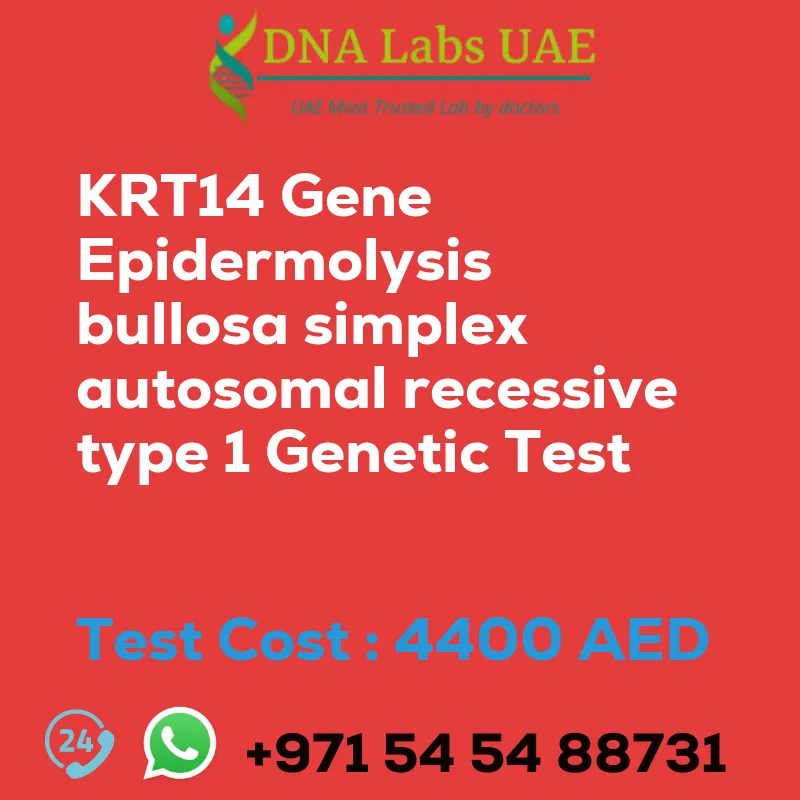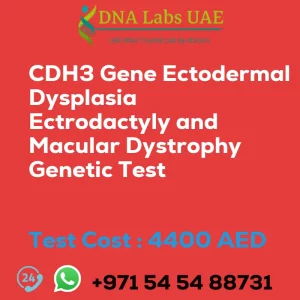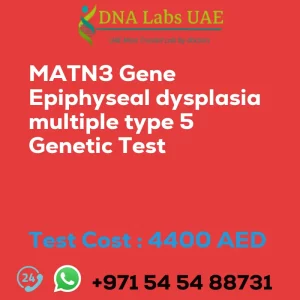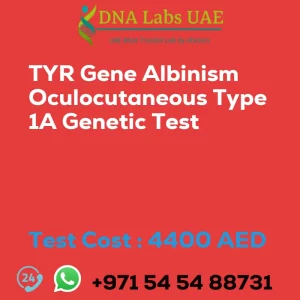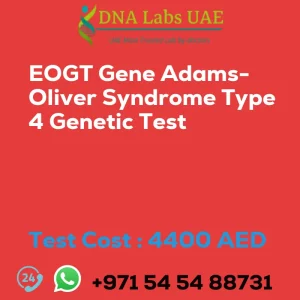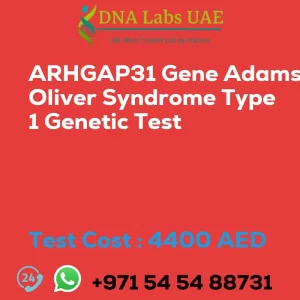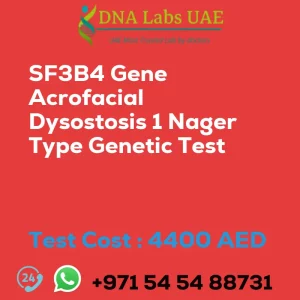KRT14 Gene Epidermolysis bullosa simplex autosomal recessive type 1 Genetic Test
Test Name: KRT14 Gene Epidermolysis bullosa simplex autosomal recessive type 1 Genetic Test
Components: Blood or Extracted DNA or One drop Blood on FTA Card
Price: 4400.0 AED
Report Delivery: 3 to 4 Weeks
Method: NGS Technology
Test Type: Osteology Dermatology Immunology Disorders
Doctor: Dermatologist
Test Department: Genetics
Pre Test Information: Clinical History of Patient who is going for KRT14 Gene Epidermolysis bullosa simplex, autosomal recessive type 1 NGS Genetic DNA Test. A Genetic Counselling session to draw a pedigree chart of family members affected with KRT14 Gene Epidermolysis bullosa simplex, autosomal recessive type 1 NGS Genetic DNA Test gene KRT14
Test Details: The KRT14 gene is associated with a genetic disorder called Epidermolysis bullosa simplex, autosomal recessive type 1 (EBS-AR1). EBS-AR1 is a rare genetic condition that affects the skin, causing it to be fragile and prone to blistering.
NGS (Next-Generation Sequencing) genetic testing is a type of genetic testing that can analyze multiple genes simultaneously, providing a comprehensive analysis of an individual’s genetic makeup. In the case of EBS-AR1, NGS genetic testing can be used to identify mutations or variations in the KRT14 gene, which can help confirm a diagnosis of EBS-AR1.
By identifying the specific genetic mutation causing EBS-AR1, NGS genetic testing can also provide valuable information for genetic counseling and family planning. It can help determine the risk of passing on the condition to future generations and guide treatment options for individuals with EBS-AR1.
It’s important to note that NGS genetic testing is typically performed by a geneticist or genetic counselor, who can interpret the results and provide appropriate guidance and support. If you suspect you or someone you know may have EBS-AR1, it is recommended to consult with a healthcare professional for further evaluation and testing.
| Test Name | KRT14 Gene Epidermolysis bullosa simplex autosomal recessive type 1 Genetic Test |
|---|---|
| Components | |
| Price | 4400.0 AED |
| Sample Condition | Blood or Extracted DNA or One drop Blood on FTA Card |
| Report Delivery | 3 to 4 Weeks |
| Method | NGS Technology |
| Test type | Osteology Dermatology Immunology Disorders |
| Doctor | Dermatologist |
| Test Department: | Genetics |
| Pre Test Information | Clinical History of Patient who is going for KRT14 Gene Epidermolysis bullosa simplex, autosomal recessive type 1 NGS Genetic DNA Test. A Genetic Counselling session to draw a pedigree chart of family members affected with KRT14 Gene Epidermolysis bullosa simplex, autosomal recessive type 1 NGS Genetic DNA Test gene KRT14 |
| Test Details |
The KRT14 gene is associated with a genetic disorder called Epidermolysis bullosa simplex, autosomal recessive type 1 (EBS-AR1). EBS-AR1 is a rare genetic condition that affects the skin, causing it to be fragile and prone to blistering. NGS (Next-Generation Sequencing) genetic testing is a type of genetic testing that can analyze multiple genes simultaneously, providing a comprehensive analysis of an individual’s genetic makeup. In the case of EBS-AR1, NGS genetic testing can be used to identify mutations or variations in the KRT14 gene, which can help confirm a diagnosis of EBS-AR1. By identifying the specific genetic mutation causing EBS-AR1, NGS genetic testing can also provide valuable information for genetic counseling and family planning. It can help determine the risk of passing on the condition to future generations and guide treatment options for individuals with EBS-AR1. It’s important to note that NGS genetic testing is typically performed by a geneticist or genetic counselor, who can interpret the results and provide appropriate guidance and support. If you suspect you or someone you know may have EBS-AR1, it is recommended to consult with a healthcare professional for further evaluation and testing. |

